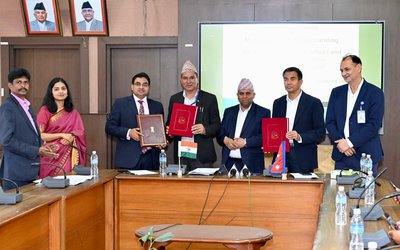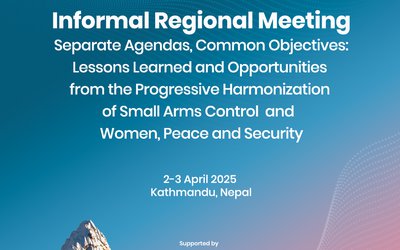
Now the elections are almost upon us, it’s time to sort out who’ll we’ll vote for and what’s in store for us under different regimes.
Looking back on my childhood I remember quite sharply the days when food was rationed. Heaven forbid that one should think of rearing a pig or chickens or anything in a freelance manner. Hot on your trail would be a government inspector, ready with a variety of fines in case he managed to catch anyone. Most people of my generation who are still around don’t often remember the grim school meals and meagre rations that brought down universal scorn on British cooking, I do. I remember the slim pat of butter one got at the end of along queue for one coupon and the paper-thin slice of meat you received for another. Instead of sugar, glucose was available and it put one off sweet tea for a lifetime. I suppose it was good for usbut not because food was rationed. It was good for us because it instilled in us that whenever times are difficult governments have to be fair and governments have to prosecute those who try to be unfair. That is why government inspectors from the food and agriculture departments patrolled retail stores and farms to ensure no one was engaged in the black market. Of course this didn’t deter some who believed they had a right to more than everyone else and today one can look back at their black-marketing antics and laugh a little but, looking at the state of the world now, it’s not so funny.
In the 21st century it’s as clear as mud to me how so much food can be thrown away, not just in developed nations but in places much nearer home, when thousands of children are living on a menu ‘to die for’, not in the food gossip columnists’ sense of the phrase but actually starving to death. It wouldn’t nag the conscience quite so much if it wasn’t for the suspicion that all this ‘have’ and ‘have not’ dichotomy is something to do with economic and political expediency.
I was quite appalled, as I’m sure were others, at what happened in Venezuela, an oil rich nation which overnight had its population rioting to grab meagre supplies from almost empty supermarkets. How do such things happen?
I’m not an expert on the rest of the world (RoW) but let’s just look at a couple of things here in our own backyard. As clear as mud to me is why kids living on the streets or in orphanages have to depend on NGOs and individuals from abroad for what amounts to quite modest sums when so many millions are spent on foreign travel by our MPs. Surely those who are working for the ‘good of the nation’ could set an example and forego a junket or two? After all we are rarely told what is achieved by this travel mania. What is obscure too is why the health posts and government hospitals are so shoddy and lack equipment(even soap, water and disinfectant) when the rich are moving in droves to private hospitals in other countries? Surely this takes pressure away from government finances? It doesn’t manifest itself in any visible improvements though.
We had 600 people, a large village full if you like, who were paid more than the average well-educated professional to sit in the Constituent Assembly? (Now parliament, by a swift sleight of hand) and factions are still arguing about the Constitution produced. Constitutions could and should be written by constitutional lawyers who understand the fine points and nuances. They should be employed by governments but not part of them. In other words a Constitution today requires objectivity. It should not be a one-sided political manifesto.
A Constitution thus drafted should then be put to a national referendum. Being raised in a democratic system I have a firm belief in its power to establish fairness, a system in which all are equal before the law. But that doesn’t mean that because I like my neighbour or the fellow who runs a steel mill that I would vote her/him into an assembly to write a Constitution for this nation or any other nation for that matter. That’s not democracy, that’s stupidity! Politicians are law enactors and law enactors should be capable. The fate of the nation is in their hands. Our current assembly, or most of it, is there because of some populist idea of democratic norms. One has to pay for populism and usually the price is heavy, very heavy indeed. Nepal is paying it now!
Capable and discerning lawmakers don’t have to be likeable.
Here in Nepal we, the people, are being led a merry dance. Not only is nothing in the political arena transparent, we are often fed ‘fake news’. Prime ministers change, ministers change, no one is consulted and no one quite knows why, apart from the obvious greed for absolute and continuing power. One cannot but wonder what has given rise to all these sudden attacks on our politicians?
From a nation known for its lack of greed half a century ago, we have become a place where vendors never put prices on their goods but wait to assess from your face and attire(and yes the colour of your skin) how much they can charge you; where lawmakers dash off to foreign climes to have talks about national affairs that are ‘not’ the business of their own public; where political deals are made behind closed doors; and where there is a carving up of the nation’s governance as if it was the personal fiefdom of a political elite. Rumours abound. It is time for transparency. I think the people are fed up of obscurity and a political black market that strips them of their sovereignty. It just isn’t fair and, if it isn’t fair, it isn’t democratic!
- Hostage – A brief Review
- May 23, 2019
- Exodus 1 - From The Rhondda To The Calder
- Feb 09, 2019
- Exodus 1 - From The Rhondda To The Calder (Mid-1800s)
- Dec 08, 2018
- Why: A Look At Certain Strange Characteristics!
- Nov 02, 2018
- Where To Now?
- Oct 12, 2018
















